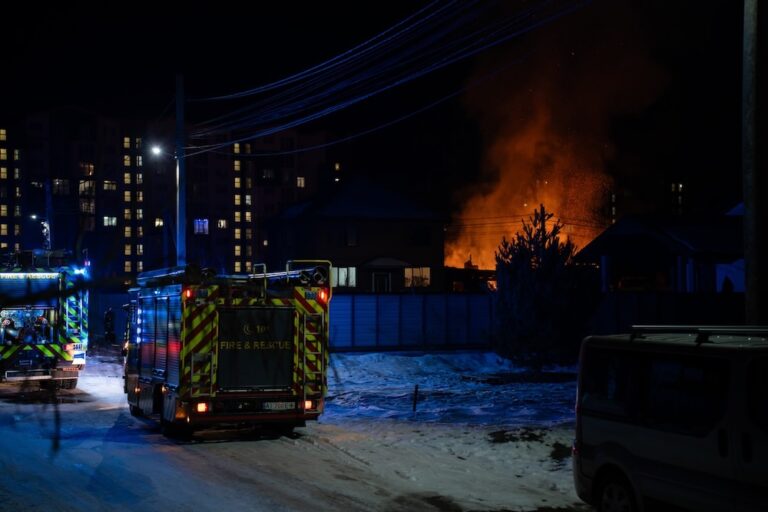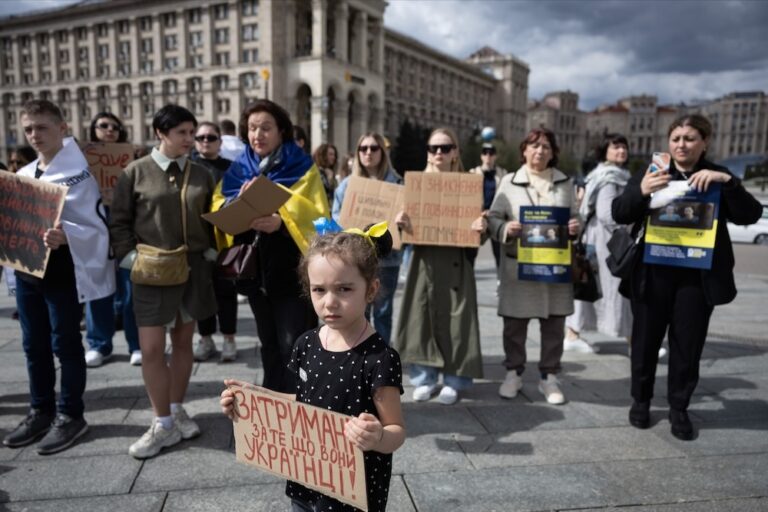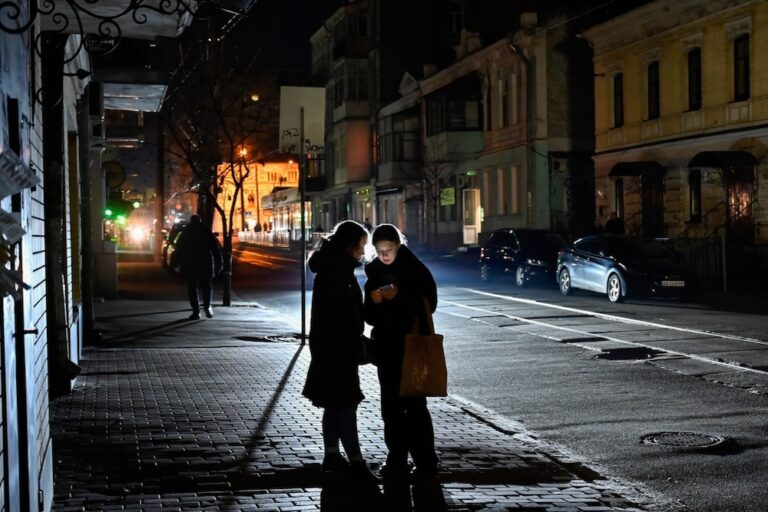(RSF/IFEX) – The arrests, announced on 27 August 2007, of 10 people including interior ministry and FSB (security service) officials for the October 2006 murder of journalist Anna Politkovskaya have taken nearly a year and are the first concrete sign of progress in the case, although, according to Vladimir Putin in December, it has been […]
(RSF/IFEX) – The arrests, announced on 27 August 2007, of 10 people including interior ministry and FSB (security service) officials for the October 2006 murder of journalist Anna Politkovskaya have taken nearly a year and are the first concrete sign of progress in the case, although, according to Vladimir Putin in December, it has been assigned “the best police and judicial professionals,” Reporters Without Borders said.
“We hope this announcement has not been made solely to defuse the protests of NGOs and questions from journalists who want the case solved,” the press freedom organisation said. “We have in the past seen announcements by the Russian authorities that have been made just for effect. And most of the investigations into the murders of journalists have never been concluded.”
Reporters Without Borders continued: “We are concerned that unnamed persons ‘outside Russia’ have been identified as the masterminds of Politkovskaya’s murder. Contrary to what the prosecutor-general says, there were people inside the country interested in silencing her and the investigation should be looking into this.”
The organisation also regretted that the identity and motives of the suspects are still unknown. “The confidentiality of the investigation and the presumption of innocence are essential but it is important that we should be able to obtain more information quickly and it is perhaps also time that a trial date is set.”
The 27 August announcement of the arrest of 10 suspects was made by prosecutor-general Yuri Chaika, who claimed that Politkovskaya’s murder was carried out by a group led by “the head of a Moscow crime ring of Chechen origin” that included former and current interior ministry and FSB officials.
Four days ago, the head of the Russian commission that was set up specially to investigate the murder, Alexandre Bastrykin, said “six versions of the Anna Politkovskaya murder are being examined” and “good prospects are emerging that it will solved.”
At a news conference on 27 August, Chaika said persons based “outside Russia” who wanted to “destabilise the country” were behind her murder. “As regards the murder’s motives, the results of the investigation (. . .) lead us to the conclusion that the persons who had an interest in eliminating Politkovskaya could only live outside Russia,” he said.
Politkovskaya, who wrote extensively about human rights violations in the northern Caucasus for the newspaper “Novaya Gazeta”, was gunned down in her central Moscow apartment building on 7 October 2006. She told the BBC shortly before her death that President Putin had deliberated provoked terrorist acts, including the hostage-taking in a Moscow theatre in 2002. Her murder, which was widely condemned internationally, highlighted the dangers that opposition journalists face in Russia.


